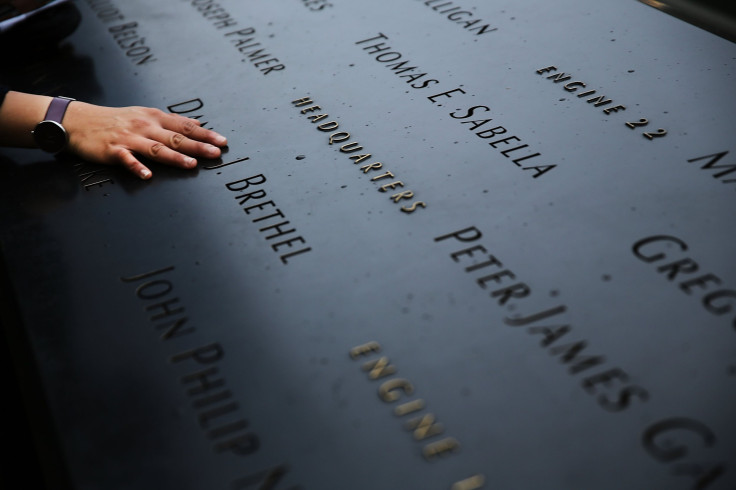Bones Of 9/11 Victim To Be Tested Amid $1M Paternity Suit: Report

The bones of a man who died in the terror attacks on 9/11 will reportedly be tested in a paternity suit to determine whether his alleged child is eligible to receive the deceased man's fortune.
As part of a paternity test, Manhattan Surrogate's Court judge Rita Mella ordered the city’s chief medical examiner to release bone fragments of late city trader Michael Morgan Taylor, the New York Post reports. The bond broker was 42 years old when he died in the attacks on the World Trade Center in New York City on Sept. 11, 2011.
An order for a DNA test was placed to determine if 24-year-old Austin Rutherford Colby, of Houston, is Taylor's biological son. If positive, Colby would stand to claim Taylor's $1 million estate.
Meanwhile, the man’s sister, Mary Kay Crenshaw, 55, of Arkansas, told the paper that the test would be "a further desecration" of her brother's remains would cause a "reopening her own emotional wounds."
Crenshaw noted that her brother had a relationship with Colby's 57-year-old mother, Gwendolyn D. Phillips, who also goes by the moniker Lady Gwen de Ashborough in England. However, Crenshaw claims that Taylor was not the child's father and that Philips allegedly waited 13 years after Taylor's death to make paternity accusations. She also asserted that the allegations were an attempt to "harass and to extort funds from [his] family."
Philips, who is black, insists that Taylor, who is white, did not acknowledge his paternity because he was ashamed of his mixed-race child. Taylor's name is on Colby's birth certificate, according to the Post. Taylor reportedly had a pending paternity case before he died.
"Don't allow racial divide nor financial neglect and mistakes keep you from correcting a very serious wrong at the expense of your grandson," Phillips recently wrote to Taylor's parents.
Despite Crenshaw's objections, Judge Mella found Phillips' paternity accusations convincing.
"On cross-examination, significant questions were raised as to Philips' general credibility," she wrote in her ruling. "Philips' claim that Taylor is Colby's father, however, remained consistent. She first made this claim at the time of Colby's birth, when she filed and the paternity and support petition and throughout the course of the litigation in this court."
If the DNA results turn out a match, Colby will still have to meet a legal obligation showing that Taylor "openly and notoriously acknowledged the child as his own" over the course of his life.
© Copyright IBTimes 2025. All rights reserved.





















